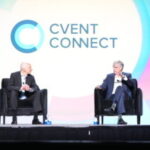Interviewing is a key method for customer research due to the rich qualitative data it provides. This data can then be used to inform your design process to ensure that you’re creating experiences that meet customers’ goals. To make sure customer interviews are successful and produce data that drives decision-making, you need to have a research plan and clear objectives, but companies sometimes skip that step and conduct interviews without adequate planning and clear focus. To ensure that you’re making the most of your customer interviews, ask yourself these five questions:
- Do we have a clearly articulated hypothesis or problem statement?
Use existing quantitative and qualitative data and strategic imperatives to help you shape this statement. Don’t be afraid to make declarative statements that summarize what you know to date. This will inform your line of questioning. These statements are also the beginning of a storyline. Not creating clear hypotheses or problem statements is the fastest way to knock your research off course in terms of time, money, and results. - What does our research plan look like?
Customer research is an opportunity to not only gain valuable customer insight but to also deepen collaboration and influence across a broader team by connecting research to strategic priorities. Use this opportunity when planning for interviews, as well. Employ a planning tool such as Forrester’s Customer Research Canvas to organize your research efforts strategically and demonstrate how customer interviews will contribute to these efforts and decision-making. - Have we interviewed internal partners who would have working knowledge of this problem?
Interviewing internal partners or stakeholders help us better define the questions we need to ask customers. Novice researchers often fall into the trap of choosing internal research participants based on their seniority and not on their understanding of, or proximity to, the problem. Avoid this mistake by determining the roles whose perspective would be the most important to solve the problem at hand. Understand their goals and perspective on the problem or hypothesis, and use that information to ensure that customer interview questions target the right problem. - Are we asking questions that can only be answered through an interview?
Time with customers is precious. If you can obtain the same data through other means (e.g., system reports, surveys, call logs), don’t waste time asking for it during the interview. Consider the diversity of research methods that you can use or may have already been used by others in your organization to collect the data you desire. - Are we changing our questions too often?
When conducting interviews, we often see patterns quickly emerge. If you swap out questions or decide not to ask some of your well-informed questions after just one or two interviews, the study will lack consistency and you will miss out on insights. Don’t be afraid to reword questions for simplicity, however. For example, if you ask a question and find yourself spending a lot of time clarifying what you’re asking, the question might be unclear. If you aren’t seeing patterns after five to eight interviews, one or more of these situations may be at play:
- Your questions and your research hypothesis may be out of alignment.
- Your pool of research participants might have too much variability given the scope of your hypothesis.
- You may need to interview more participants because the problem area is more complex or nuanced than originally determined.
It can take time to become a skilled interviewer. These tips are by no means exhaustive or a substitute for skilled research expertise but rather a window into the challenges you might face and how you might overcome them. If you’re a Forrester client and would like to discuss this topic further, set up a conversation with us here. You can also follow or connect with us — Senem Biyikli and AJ Joplin — on LinkedIn.
Related Forrester Content
The Winning Way To Plan Customer Research
Design Better By Conducting The Right Kinds Of Research
Build Effective Research Partnerships To Ensure Impact — upcoming research








